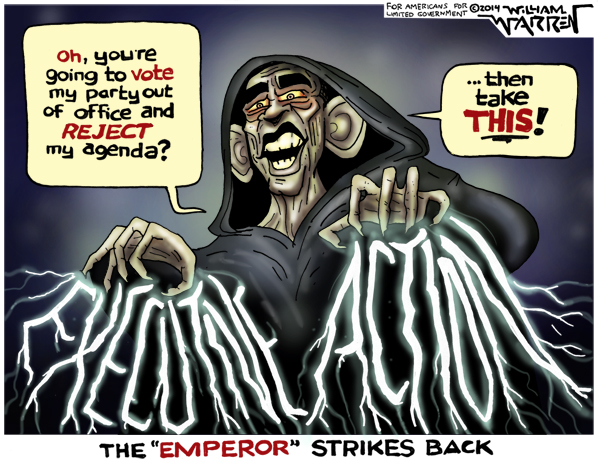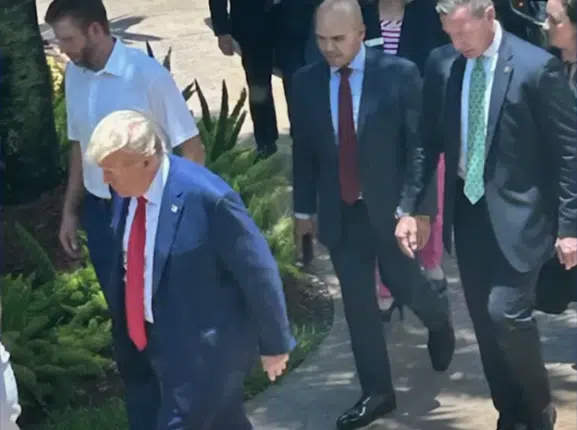“[President-elect Donald Trump]’s got a few of [executive actions] probably in the area of four or five that we’re looking at for Friday. Then there are some other ones that I expect him to sign with respect to a couple of issues that have been high on his priority list.”
That was incoming Press Secretary Sean Spicer broadcasting ahead of time what to expect from President-elect Donald Trump upon being sworn into office on Jan. 20. In short, Trump is getting straight to work. And first on the agenda could be undoing many of the executive actions from his predecessor, outgoing President Barack Obama.
Spicer was rather unspecific what actions might be taken immediately, leaving the Washington, D.C. press corps and the American people to speculate about just what might be on the agenda.
That said, one imagines that rescinding Obama’s executive amnesty for millions of illegal immigrants with U.S.-born children might be close to the top of the list. This was a big campaign promise by Trump and he can send a strong message to his supporters that when he makes a promise, he keeps it, by repealing the amnesty in day one.
And his decision to close the Guantanamo Bay detention facility.
Overall, Obama had issued 260 executive orders. Those could be undone with the stroke of a pen en masse, since there is nothing legally that keeps them in place.
Don’t forget all of the regulations issued by executive departments and agencies. Upon assuming office Trump could direct the heads of those departments and agencies to begin the process of delaying, revising or rescinding through the process under the Administrative Procedures Act economically harmful regulations, including the 2009 Carbon Endangerment Finding by the Environmental Protection Agency, the new and existing power plant rules and others. Also labor regulations like the overtime pay rule or the persuader rule.
Further down the list might appear the Affirmatively Furthering Fair Housing regulation that conditioned the receipt of community development block grants on municipalities making changes to local zoning along income and racial guidelines.
The regulatory process can take a couple of years to work through, meaning for those items Trump has already made up his mind about to revise or rescind, it is important to get started right away.
But Trump need not act alone. Congress has a very viable role under the Congressional Review Act (CRA), which gives Congress the power to roll back with simple majorities regulations within 60 legislative days of being implemented on an expedited basis. Critically, this gets around the standing rules of the Senate that might otherwise require a supermajority to do away with a regulation.
As far as which regulations could be targeted by Congress, those include those issued going back to June, according to the Heritage Foundation, and include “many dozens of major rules [that] could be vulnerable to a CRA challenge. These include, among others: Rules under the Dodd–Frank financial regulation law, Sick leave for federal contractors, Offshore drilling rules, and Energy mandates for home appliances.”
It would also include another $6 billion of midnight regulations Obama has implemented on his way out the door.
Controversially, there was also Obama’s executive action to indefinitely seal off much of the outer continental shelf in the Atlantic and Arctic Oceans from oil and gas drilling. Obama officials believe this action cannot be undone by executive action, although there is a clear process under the law for issuing new offshore drilling leases.
Trump could try to rescind this action via some executive action of his own, but he should anticipate a legal fight in federal courts, which could take another few years to sort out. Alternately, Congress could always just defund this Obama overreach on the outer continental shelf or pass new legislation repealing the provision he invoked to seal it off.
But the sky’s the limit. Congress can and should act preemptively to deal with legislatively that which may take a long time via the regulatory process, including defunding harmful regulations in the April continuing resolution. Congress has the Article I power of the purse to prohibit the use of funds to implement regulations and any other executive action.
If that all happens, the Obama’s legacy may be wiped away like sand castle that was made too close to the waves when the tide comes in.
Robert Romano is the senior editor of Americans for Limited Government.








